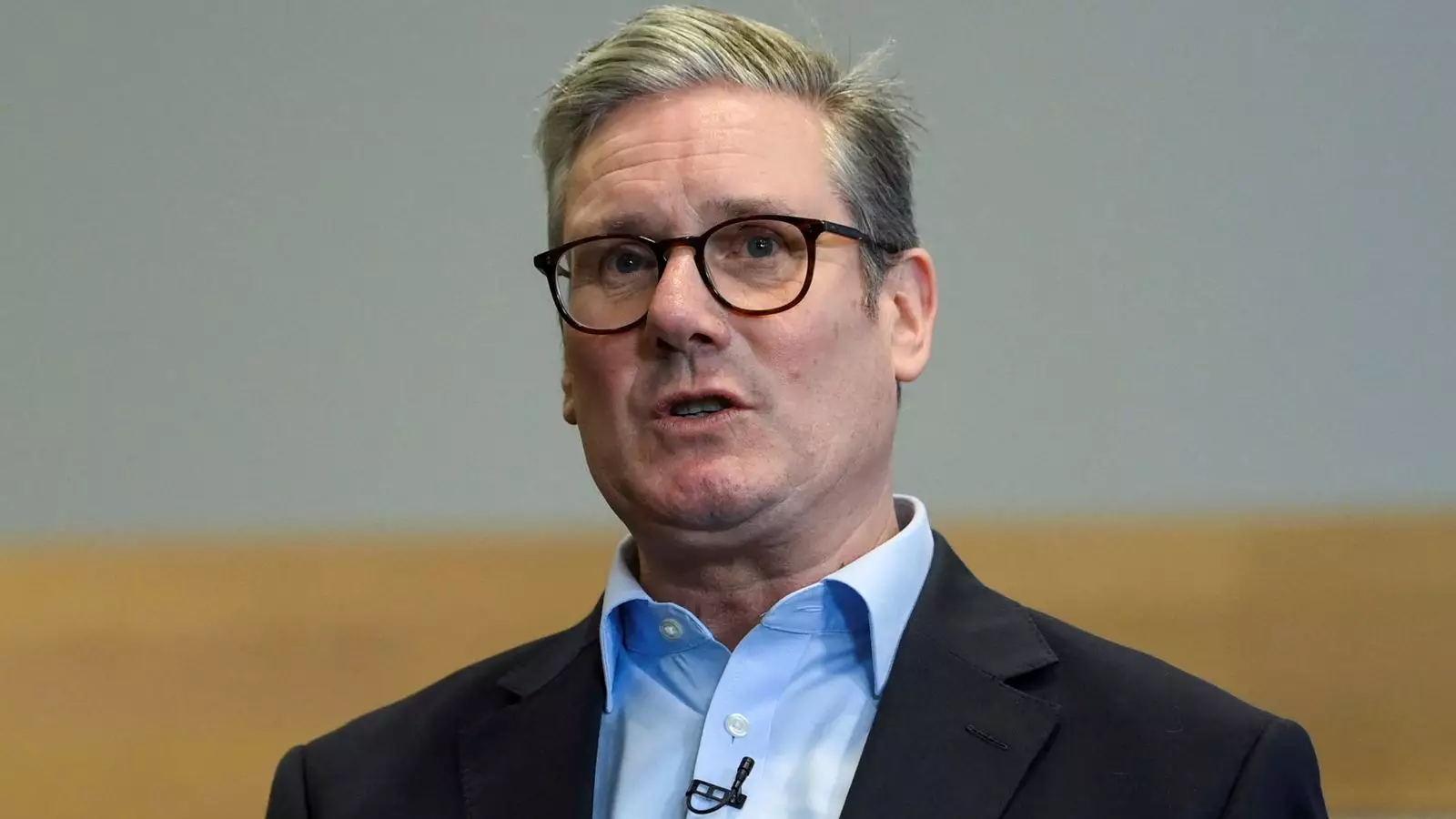In a pivotal moment for the Labour government, Prime Minister Sir Keir Starmer is preparing to address the nation regarding the upcoming budget that aims to tackle the UK’s fiscal woes. Set against the backdrop of unprecedented economic challenges, Starmer’s speech is expected on Monday, foreshadowing Wednesday’s unveiling by Chancellor Rachel Reeves. As Britain grapples with an array of economic pressures, the government seeks to establish a clear economic trajectory that aligns with its long-term vision for growth and stability.
The Labour Party is poised to confront the “harsh light of fiscal reality,” a sentiment articulated by Starmer in an overview of the government’s plans. He is likely to emphasize a commitment to change the trajectory of British economic growth for the better, a core promise that underlines the party’s manifesto. This upcoming budget is not merely a procedural requirement; it represents a critical assessment of the nation’s current economic landscape that has been impacted by fourteen years of challenges. As the Prime Minister notes, the current economic narrative cannot be compared to previous years, specifically 1997 and 2010, when varying levels of public service and financial stability existed.
Acknowledging the need for decisive action, Chancellor Reeves faces the daunting task of addressing a projected £40 billion “black hole” in public finances. The government’s proposals are expected to include an increase in employer national insurance contributions and the elimination of certain tax exemptions for private schools. These measures, while aimed at generating revenue, have drawn criticism and accusations of hypocrisy among opposition parties and some fiscal analysts, particularly regarding the freeze on income tax thresholds that many view as contradictory to the party’s promise to protect working people from tax hikes.
While Labour’s stance prohibits increases in VAT, national insurance, or income tax for “working people,” the definition of this group has come under scrutiny. Starmer’s assertion that income earners from assets like property may not qualify raises questions about the inclusivity of economic relief measures. The government must clarify this definition to quell concerns about fairness in tax policy, ensuring that their reforms genuinely benefit those they intend to support.
Both Starmer and Reeves are expected to confront criticism directly, especially concerning their plans for implementing unpopular but necessary fiscal adjustments. Starmer’s call to abandon the allure of “easy answers” champions a more realistic approach to govern amidst economic turbulence. He recognizes that the public’s confidence can only be secured if the government is transparent about the challenges ahead and the tough decisions that must be made.
As Starmer prepares to reassure the public that “better days are ahead,” his words imply recognition of ongoing hardships and a commitment to building a more sustainable future. The acknowledgment of investment shortages and productivity challenges positions the Labour government as one willing to take responsibility and work towards rectification. Moreover, this commitment is consistently echoed by Education Secretary Bridget Phillipson, who emphasizes the party’s pledge to reform public services without placing additional tax burdens on the average worker.
Amidst the pressing concerns of fiscal gaps, the Labour government has confirmed several key investments that may fortify public services. Significant allocations are earmarked for rebuilding deteriorating schools, along with substantial funds directed towards the NHS to reduce escalating waiting lists. These investments signal a proactive stance, reflecting Labour’s focus on immediate public service concerns while navigating the broader economic challenges.
Looking ahead, the upcoming budget could be a defining moment for the Labour government. It represents an opportunity to reframe the economic debate and to take assertive action toward long-term growth and resilience. The challenge remains substantial; however, with clear communication and a willingness to confront difficult truths, Sir Keir Starmer and Chancellor Rachel Reeves can position their government as a transformative force in British politics. Thus, as the nation awaits the budget announcement on Wednesday, the emphasis will undoubtedly be on whether the Labour government’s plans align with its stated vision for the future.


Leave a Reply